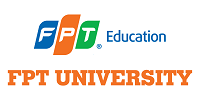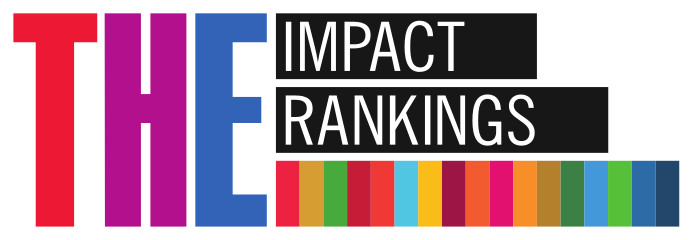General objectives
The academic program is application-oriented, aimed at training graduates in Korean Language with political qualities, professional ethics, an understanding of Korean culture, a solid knowledge of the language, and proficiency in practical language skills for use in multilingual and multicultural environments.
The program also provides additional knowledge and supplementary skills through three elective tracks: Economic and Trade Orientation, Tourism Orientation, and Pedagogical Orientation. This combination helps students gain strong professional competence, meeting the demands of society and the rapidly developing Vietnamese economy, which is integrating with the world.
Specific objectives
The academic program of Bachelor of Korean Language is more clearly demonstrated in the following specific objectives:
- PO1: Helps learners master the four skills of the Korean language (listening, speaking, reading, and writing) in academic, work, and social situations.
- PO2: Enables learners to use Korean in specialized fields such as translation and interpretation, tourism, and education.
- PO3: Provides learners with basic knowledge about the history, culture, literature, society, and economy of Korea, so they can analyze, assess, and apply this knowledge in economic exchanges and technology transfer between Vietnam and Korea.
- PO4: Ensures learners acquire solid expertise and professional skills in fields related to the Korean language, with a clear career orientation to meet the demands of society and the rapidly developing Vietnamese economy.
- PO5: Trains learners to effectively use English for communication within their future professional fields.
- PO6: Equips learners with teamwork skills, presentation skills, critical thinking skills, and the ability to plan and manage time effectively.
- PO7: Provides learners with knowledge about entrepreneurship and fosters an entrepreneurial spirit.
- PO8: Develops learners’ basic physical skills, instills the habit of exercising and playing sports, improves physical fitness, and enhances health, contributing to their overall educational goals.
- PO9: Equips learners with an understanding of political theory, the Party’s policies, state policies, national defense, and culture in the context of international integration.
- PO10: Provides learners with a strong foundation for self-directed learning and personal development, laying the groundwork for further studies and research at higher academic levels.
Career prospects
After graduating, graduates in the bachelor’s program of Korean Language can work in domestic enterprises, foreign-invested enterprises, representative offices, economic and financial organizations, etc. In particular, they will be able to work as:
– Office secretaries, foreign affairs assistants, administrative assistants, assistant directors, market development officers, etc.: They will be able to use Korean to work at foreign or joint enterprises, Vietnamese enterprises, and fields that involve the use of the Korean language.
– Employees and managers in the tourism and hotel sector: They will be able to take on positions in the tourism industry such as tour guides, travel sales staff, customer care staff, hotel managers. tour operators, etc. They can work in travel agencies, and domestic and foreign travel agencies that specialize in organizing tours and travel programs for Korean tourists to Vietnam and vice versa.
– Translators, interpreters, and editors: They can work at Korean agencies and enterprises or Vietnamese agencies and enterprises cooperating with Korean partners, at press agencies, publishing houses, media agencies, etc. In addition, they can work as freelance interpreters and translators for businesses or press agencies, diplomatic offices, etc.
– Researchers, lecturers, and teachers: They can carry out research in research centers and units on Korean studies at home and abroad. They can also teach Korean to Vietnamese students at agencies, schools, or organizations.
Program Learning Outcomes
| PLO Name | PLO Description | |
| 1 | PL01 | Apply knowledge of social sciences, politics and law, national defense and security to professional and academic activities. |
| 2 | PLO2 | Apply knowledge of information technology and artificial intelligence effectively in professional tasks to meet the demands of today’s technology-driven society. |
| 3 | PLO3 | Reason soundly on the basis of acquired knowledge to plan, organize, supervise, and manage professional activities. |
| 4 | PLO4 | Make informed judgments based on knowledge of Korean linguistics, Korean studies, and translation theory to handle professional situations. |
| 5 | PLO5 | Synthesize acquired knowledge and connect it with practical knowledge to build solid professional expertise in specialized tracks such as Korean for business and economics, Korean for tourism, or Korean for pedagogy. |
| 6 | PLO6 | Use Korean fluently in four skills (listening, speaking, reading, writing) at a proficiency level equivalent to TOPIK II Level 5, Level 5/6 of the Vietnamese Six-Level Foreign Language Proficiency Framework, or CEFR Level C1; use English effectively at a proficiency level equivalent to Level 4 of the Vietnamese Six-Level Foreign Language Proficiency Framework or CEFR Level B2. |
| 7 | PLO7 | Communicate effectively, convey ideas clearly, engage in critical discussion, and accurately evaluate outcomes and quality of work to solve specific tasks or complex problems. |
| 8 | PLO8 | Apply entrepreneurial skills to design and implement start-up projects, creating employment opportunities for oneself and others. |
| 9 | PLO9 | Work independently, take personal responsibility, demonstrate self-direction, make professional judgments, and defend personal viewpoints. Demonstrate lifelong learning ability, adapt to technological and social changes, and maintain ethical standards in both professional and social contexts with a strong sense of community service. |
| 10 | PLO10 | Demonstrate professional attitudes, responsibility, and teamwork skills. Be able to plan, guide, coordinate, supervise, and evaluate the performance of others to improve the effectiveness of activities. At the same time, show resilience in both mind and body, affirm national identity, and demonstrate confidence in international integration. |



